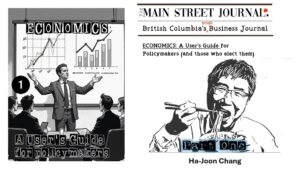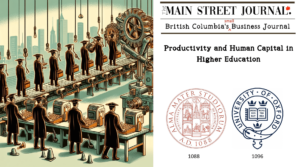Many years ago, I was chatting with a neighbour at my parent’s home on beautiful Saturna Island, located between Vancouver and Victoria on British Columbia’s idyllic West Coast. She asked me what I did for a living, and I told her I was a tax accountant. She assumed I meant personal tax returns, so I told her I did corporate tax work primarily for companies claiming tax incentives for research and development. I could see from her reaction she thought I was talking about large corporations like Microsoft or General Motors. But what I really meant was companies like Antony Scott Systems Design Limited. You know, a small Canadian-controlled private corporation with a single shareholder and maybe two software developers on payroll. The truth is that most of us have a somewhat distorted view of the world around us. Talk about the world of business and corporate tax, and most Canadians wouldn’t realize that more than two thirds of Canadians working in the private sector work for companies with fewer than 50 employees. What’s more, these firms average only about 3.3 staff members. Not long ago, I read a series of articles in Canada’s Globe and Mail (supposedly Canada’s national business paper). The reporter described 3 successful startups out of Toronto. One of them had more than 500 employees. That would have made it a large corporation according to Statistics Canada. The other two had 150 and 220 respectively. None of those 3 companies were startups. Sure, they might have been at some point. But the same could be said of Google or Microsoft. That was when I began to realize the importance of statistics. Statistics help us to see the world as it really is.

Risks of Founding a Startup
What are the chances of a successful exit for angel investors in a startup? Angel investing is a high-risk, high-reward game. The chances of a



















